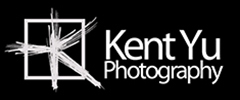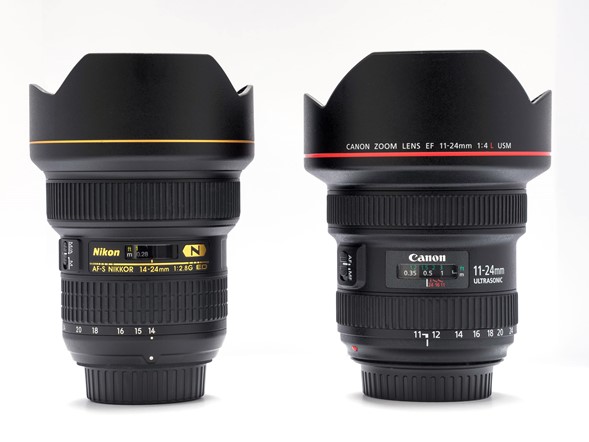If you like this post, help us share it
Canon’s new 11-24mm f/4 is the world widest zoom lens. It is even wider than Nikon’s famous 14-24mm f/2.8. It is also bigger, heavier and more expensive than the Nikon’s. Compare to the Nikon 14-24mm f/2.8, it weights 180 grams more, 10mm fatter and cost $1000 more. This gives you a perspective that if Canon is to come out with a 11-24mm f/2.8, it will be impractically huge and heavy. There is a balance with cost, size and practicality when it comes to lens design and the fact that Canon has decided to offer a lens from 11mm is an interesting one.
The Canon 11-24mm is 3mm wider than the Nikon 14-24mm f/2.8 but a stop slower and cost $1000 more. Both lenses have adopted with built in lens hood and without filter thread. Given both lenses are specified and cost differently, they are designed for different purposes; the Nikon 14-24mm is an ultra wide angle lens for low light situation while the Canon 11-24mm is for extreme wide angle uses.
You can pre-order your Canon 11-24mm f/4 here

Here is an angle of view comparison with the different lenses at their widest focal length. There is a 12° difference between the Canon 11-24mm and Nikon 14-24mm at the widest focal length and 19° compare to the Canon 16-35mm. 12° is quite significant when it comes to landscape and architectural photography which is what this lens is designed for. Both Nikon 14-24mm f/2.8 and Canon 11-24mm f/4 are what I considered special lenses like macro lens and fish eye lens. If you are looking for a general wide angel lens, I would suggest to go with the Canon 16-35mm f/2.8 or Nikon 17-35m mf/2.8, they are much cheaper and offer a more useful zoom range.
| Lens | Horizontal | Vertical | Diagonal |
| Canon 11-24mm f/4 | 117.1° | 95.0° | 126.1° |
| Canon 14mm f/2.8 | 104.3° | 81.2° | 114.2° |
| Canon 16-35mm f/2.8 | 96.7° | 73.7° | 107.1° |
| Nikon 14-24mm f/2.8 | 104.1° | 81.1° | 114.1° |

Canon 11-24mm f/4 Detailed Features
Durable and Tough
The mechanical structure of this lens makes it move more smoothly, higher precision and a highly durable construction. Additionally, the zoom durability and resistance to vibration and shock of the lens barrel is exceptional. This lens achieves high durability and toughness in order to withstand harsh environmental conditions and rough handling. Dust-proof and drip-proof structure is applied to the mount, the switch panel, zoom ring, and focusing ring.
Circular Aperture Diaphragm
Equipped with an electromagnetic diaphragm (EMD) that uses a 9-blade circular aperture diaphragm, transforming point light sources in the background into more circular and beautiful background blurred shapes.
Focal Length of 11mm
Canon’s new EF11-24mm f/4L USM is an ultra wide-angle zoom lens that surpasses all competition by starting at 11 mm, the widest angle in the world. This lens has achieved a minimum focusing distance of 0.28 m (maximum magnification of 0.16x). This enables the user to shoot the subject from up close whilst still capturing the surroundings. Explore other photographic possibilities such as capturing wider range in one shot (horizontal angle of view of 117 degrees and diagonal angle of view of 26 degrees), large subjects from cramped positions or even surreal images through use of extreme perspectives.
Silent AF USM
This lens utilizes rear focus and ring Ultra Sonic Motor as well as offers silent Auto Focus. The use of a high-speed CPU and an optimized Auto Focus algorithm has brought about higher precision and speed.
ASC Coating
ASC is a technology that forms a film that includes air spheres over the vapor-deposition coatings. By regularly lining the inside of the coating with low refractive index air, this forms an ultra-low refractive index layer. ASC has excellent anti-reflective effects, particularly with respect to incident light that enters almost vertically. The air spheres cover a flat interface, so being a strong coating is also a feature.
Aspherical and UD Lens
An aspherical lens is used that has largest diameter in the world for an SLR interchangeable lens*. The following was achieved with four aspherical lenses: Widest angle 11 mm in the world, high image quality around the peripheral areas, and very low distortion at wide angle (between the EF16-35mm F4L IS USM and TS lenses).
Where can I find the equipment seen on this site?
If you find this site useful and planning to purchase any of the equipment seen on this site, please show your support by purchasing your photo equipment at B&H Photo Video, or through any of the affiliate links seen on this site.


